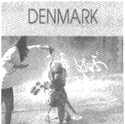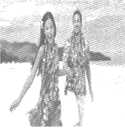本试卷共五道大题,39道小题,满分60分,考试时间90分钟。
知识运用 (共14分)
一、单项填空(共6分,每小题0.5分)
从下面各题所给的A、B、C、D四个选项中,选择可以填入空白处的最佳选项。
1. Our English teacher Mr. Smith is kind and helpful. We like ___________ a lot.
A. her B. him C. it D. them
2. Amy usually takes online classes ___________ 8 a.m. from Monday to Friday.
A. in B. on C. at D. of
3. Sam didn’t go to work ___________ he had a fever.
A. because B. so C. but D. or
4. Wuhan is one of ___________ cities in Central China.
A. important B. more important
C. most important D. the most important
5. - Linda, ___________ you pass me a pencil, please?
- Sure. Here you are.
A. should B. must C. can D. need
6. - Excuse me, ___________ are the tomatoes?
- They are 7 yuan a kilo.
A. how old B. how much C. how long D. how many
7. My parents ___________ a walk after supper every day.
A. take B. took C. are taking D. will take
8. - What is your sister doing right now, Jenny?
- She ___________ how to make a cake.
A. learns B. is learning C. learned D. will learn
9. Tommy ___________ very hard since he came to our school.
A. studies B. is studying C. studied D. has studied
10. Peter _________ on the farm when the storm began.
A. was working B. worked C. works D. has worked
11. Tokyo 2020 Olympics _________ in 2021 because of coronavirus(新冠病毒).
A. held B. will hold C. was held D. will be held
12. - Mary, could you tell me _________ this novel?
- Oh, I bought it in Wangfujing bookstore last Sunday.
A. where did you buy B. where will you buy
C. where you bought D. where you will buy
二、完形填空(共8分,每小题1分)
阅读下面的短文,掌握其大意,然后从短文后各题所给的A、B、C、D四个选项中,选择最佳选项。
The Fish I Didn’t Catch

I still remember my first fishing trip as if it were but yesterday. It was a still, sweet day of early summer. I received the first fishing pole from my uncle’s hand, and walked with him towards the__13__.
My uncle, who knew where the best hangouts of fish were, kindly placed me at the most favorable point. I threw out my line as I had so often seen others, and __14__eagerly for a bite. Nothing came of it. “Try again,” said my uncle. Suddenly the bait (鱼饵) went down out of sight. “Now for it,” I thought, “Here is a fish at last.”
I made a strong pull, and brought up a tangle of weeds (一团海草). Again and again I cast out my line and drew it back __15__. I looked at my uncle appealingly (可怜巴巴地). “Try once more,” he said, “We fishermen must have __16__. It took me a whole day until I got my first fish.”
Suddenly something pulled hard at my line, and swept off with it into deep water. Jerking it up, I saw a big fish wriggling (扭来扭去) in the sun. “Uncle!” I cried, looking back in uncontrollable __17__. “I’ve got a fish!” “Not yet,” said my uncle. As he spoke, there was a plash(泼溅) in the water, my hook hung empty from the line. I had lost my __18__. My patience was used up.

I sat down on the nearest stone and __19____ to be comforted. Even my uncle promised that there were more fish in the river. He refitted my bait, put the pole again in my hands, and told me to try my luck once more.
“But remember, boy,” he said, “Never show off catching a fish until he is on dry ground.”
Though years have now passed, I have always been reminded of the fish that I did not catch. When I hear people show off a work as yet undone, I call to mind that scene by the river, and the wise warning of my uncle, “It’s no use to talk too __20____ about anything until it’s done.”
13. A. river B. hill C. park D. forest
14. A. listened B. jumped C. waited D. read
15. A. broken B. empty C. open D. shiny
16. A. hope B. courage C. intelligence D. patience
17. A. sadness B. satisfaction C. disappointment D. excitement
18. A. prize B. money C. way D. job
19. A. forgot B. refused C. reminded D. wanted
20. A. carefully B. directly C. proudly D. actively
阅读理解(共36分)
三、阅读下列短文,根据短文内容,从短文后各题所给的A、B、C、D四个选项中,选择最佳选项。(共26分,每小题2分)
The Most Unusual Traditions in the World Each country or region(地区) has its own laws and traditions, and some of them cause sincere surprises and misunderstanding among people of other countries and regions. | |
| Boxing Day In Australia, Boxing Day is on December 26, the day after Christmas. On the day, workers, businessmen, and the poor traditionally are presented with gifts. People spend time with their families and loved ones. They watch sports, play games, hunt, go for walks and eat Christmas leftovers(剩饭). People also love to shop on Boxing Day. |
| Throwing Cinnamon(肉桂) to Those Still Single at 25 In Denmark, people throw cinnamon to anyone who is single, as long as they are over the age of 25. Sometimes the person is put in the water with lots of cinnamon sticks on his or her birthday, mostly by friends and family members. It encourages the singles to look for their partners before they are 25. |
| Burns Night In Scotland, Burns Night is celebrated in honor of the poet Robert Burns and his contribution(贡献) to the Scottish culture. On the 25th of every January, people prepare a dish called Haggis, a kind of sausage. The tradition is to read the poem on that dish written by Burns before eating. |
| Flowered Clothes In Hawaii in America, people are very friendly. They welcome each visitor with a long necklace made of beautiful fresh flowers. Men visitors are invited to wear bright flowered shirts and women often wear long flowered dresses. People often say “Aloha” to each other. Aloha means both hello and good-bye. It also means “I love you”. |
21. Boxing Day is on __________.
A. December 26 B. one’s 25th birthday
C. January 25 D. December 25
22. Burns Night is celebrated in ____________.
A. Australia B. Denmark C. Scotland D. America
23. __________ is the tradition in Hawaii.
A. Throwing cinnamon on the singles
B. Reading the poem on the dish
C. Eating Christmas leftovers
D. Wearing flowered clothes
B
Food for Good
In late August, after Hurricane(飓风) Dorian passed, José Andrés led a team of chefs and other volunteers to the disaster area, where they immediately set up kitchens and cooked 30,000 meals a day. Because of their arrival, people affected by the disaster could eat fresh and healthy food, which was unimaginable in the past.
Before 2016, people in the disaster areas were only able to get prepackaged(预先包装的) meals, which usually didn’t taste great and some of the food was even unhealthy. Andrés, who owns several popular restaurants in the United States, thought he could solve the problem. As a chef, he has the experience of creating delicious dishes and running a kitchen. What’s more, he can even design dishes that suit the local tastes. So he set up the World Central Kitchen (WCK), an organization offering freshly made and healthy meals free for people affected by natural disasters.
Last year, WCK, with only 25 staff members, fed millions of survivors(幸存者) of 13 disaster areas around the world. How could they make it? Much of its work was done by volunteers from the disaster areas. The youngest volunteer once was even a 10-year-old girl who could run parts of the kitchen on her own. “She became a general in my army of volunteers,” Andrés said. The girl and 20,000 volunteers served almost four million meals after Hurricane Maria hit Puerto Rico.
“You know good food has great power. A hot meal expresses love, hope and humanity.” Andrés said, “It is so important when people are deeply affected by disasters.”
24. What did José Andrés and his team do after Hurricane Dorian?
A. They built new houses.
B. They taught how to cook.
C. They sent medicine to the sick.
D. They offered freshly made meals.
25. Who worked in the WCK?
A. 25 doctors and nurses.
B. Some chefs and volunteers.
C. A ten-year-old girl and her family.
D. Many officers from the government.
26. According to Andrés, the power of good food can __________.
A. improve chefs’ creativity
B. help volunteers save energy
C. bring survivors warmth and hope
D. make chefs’ restaurants more popular
C
When you think of robots, what is the first thing that comes to mind? Do you think of science fiction movies like Star Wars, where robots of all shapes and sizes are part of daily life? The word “robot” itself comes from a play written in 1920 by Karel Capek. In the play, people create robots to do some everyday tasks.
Today, most robots don’t look human. Modern robots take many forms and are good at many things, from sweeping the floors in your home to working in factories. They are even exploring the surface of the moon. But there is an interesting irony(讽刺) in the world of robotics which describes a surprising problem: What humans find easy is extremely complicated for a robot. However, what humans find difficult is pretty easy for a robot. For example, picking up clothes in a messy room is simple for people. But that kind of chore is very hard for a robot. Another example is the game of chess. People might find it difficult to win the game of chess all the time. But robots like Alpha-Go can be programmed to play it very well.
This is because robots are very good at doing things in controlled environments. However, moving through a room filled with random(随机的) objects is hard for robots, along with picking up objects of different shapes and sizes without damaging them. In short, it is very difficult for them to deal with certain types of variables.
It turns out that one of the most difficult things to improve in robots is their ability to control objects. Luckily, great progress is being made in the development of robots. On the one hand, exciting developments in making human-like hands and legs are underway. On the other hand, the biggest progress might result from using virtual learning(虚拟学习) to “teach” robots through computer simulations(模拟). In this way, robots can ” guess” what to do without an order when they meet unfamiliar things in the real world.
Soon, robots may be able to do those things that humans find simple. That means big changes in what robots can do and how they can help us with daily tasks. Robots might make movies a reality.
27. What’s the purpose of the first paragraph?
A. To give an example.
B. To present the topic.
C. To explain what robots are.
D. To show how robots develop.
28. According to the passage, what might be difficult for robots?
A. Playing chess.
B. Washing the dishes.
C. Making cars in factories.
D. Gathering up clothes in a mess.
29. What’s the writer’s opinion about robots in the future?
A. They will cause further problems for people.
B. They will deal with new things depend on orders.
C. They can hardly develop until they look like human.
D. They can benefit people more by making improvements.
D
Though being a parent has never been easy, the Internet hasn’t made the job any easier. Just how seriously are parents taking their role of monitoring(监控) their children’s online behavior?
A new study from the Digital Future Project finds a sharp difference in parental ways of Internet supervision(监督). 70% of parents say they monitor their kids’ online activity while on Facebook and other social media sites. In contrast, 30% of parents don’t step in kids’ online life because they trust their kids, don’t want to show a lack of trust, don’t know how to use social media sites or don’t have time to. Such a divide is due to the fact that parents fall in multiple generations with many different types of parenting styles.
Many parents take a wide range of actions to monitor and police their teen’s online behavior. Nearly six-in-ten parents say they often or sometimes check which websites their teen visits. 46% have password to log in their children’s social media accounts. In order to combat unsafe websites surfing, some parents even download softwares such as Spectorsoft, which blocks, records and alerts parents by monitoring kids’ Internet use.
However, parenting expert Gwenn Schurgin O’Keeffe, CEO of a parenting website PediatricsNow.com, advises against using such software as Spectorsoft unless it’s a unique situation. “You do things because you love your kids and you want to protect them,” she says, “But kids aren’t these evil(邪恶的) creatures. Not trusting the online world should not be your only consideration.”
With growing concerns, great efforts have been made globally to ensure Internet safety and quality for youngsters. The US government updated COPPA (the Child Online Privacy Protection Act) to increase protection for children’s private information. Europe has not only given people “the right to be forgotten” on social media sites, allowing them to wipe their browsing history clean, but has also limited companies’ access(进入) to personal information. “I like the idea,” a user of PediatricsNow.com says, “Kids and teenagers are just experimenting. Until they hurt other people, they should be free to be a kid and learn about life.”
Despite these efforts, government regulations(规章) are having a hard time keeping up as new websites pop up every day. Therefore, parents still have to step up and recognize they need to be involved in their kids’ lives and find that happy medium. They have to stop being so disbelieving and give kids chances and the benefit of the doubt.
30. What does the study from the Digital Future Project find?
A. It is hard to control children’s online behavior.
B. Parents are divided on monitoring kids’ Internet use.
C. There is a large generation gap between parents and kids.
D. Parents who monitor kids’ online activity don’t trust their kids.
31. The word “combat” in Paragraph 3 probably means ” __________”.
A. give up B. carry out
C. fight against D. join in
32. O’Keeffe advises against using softwares such as Spectorsoft because __________.
A. parents need to think more than the danger of Internet
B. children can surf the Internet without parents’ help
C. different people have different parenting styles
D. such software is useless in a special situation
33. The writer probably agrees that __________.
A. COPPA is helpful for collecting kids’ private information
B. enough space is needed for kids to experience the online life
C. allowing kids to clean webpage records may hide the truth
D. governments play a major role in protecting children’s online safety
四、阅读短文,根据短文内容回答问题。 (共10分,每小题2分)
Hope for Tigers
In 2010, the World Wildlife Fund (WWF) brought bad news that the world tiger population had hit an all-time low. There were just 3,200 tigers left in the wild, about half as many as there had been ten years before.
Now there’s good news: Tigers could be making a comeback. There were about 4,000 tigers in the world in 2019. In July, India, which has 70% of the world’s tiger, announced(宣布) that its tiger population had reached nearly 3,000. That’s a 30% rise in just four years.
India’s success was years in the making. In 2006, habitat(栖息地) loss made the number of India’s tigers reduce to only 1,411. So the Indian government decided to take a stronger plan of protection. Since its Wildlife Protection Act became law, India has given tigers a high level of protection.
Also, India’s latest tiger amount was the work of thousands of scientists. They covered 150,000 square miles of tiger habitat, using thousands of cameras to record the animal’s movements. With the help of their research, India created 50 reserves((保护区), where tigers can spread out and hunt(捕猎).
It’s when the big cats move away from the reserves that trouble starts. “When tigers leave protected reserves, they often run into local people. We cannot save wildlife without the cooperation of the people.” says wildlife expert Shari Rodriguez. Therefore, India’s government has been moving villages away from reserves. “In India, there is a lot of national pride in tigers. They are India’s biggest attraction. Villagers benefit from jobs in the national parks or from selling art works to tourists.”
But challenges remain for tigers all over Asia. They are hunted for their skin, and their teeth are sold as medicine. “They’re still in danger,” Rodriguez says. She draws hope from India’s success, “This is a small, small victory in a long war against dying out.”
34. How many tigers were there in the world in 2019?
35. Why did Indian government take a stronger plan of protection in 2006?
36. What happened to India with the help of scientists’ research?
37. What are the challenges for tigers all over Asia?
38. What are Paragraph 3 to Paragraph 5 mainly about?
书面表达 (共10分)
五、文段表达(10分)
39.从下面两个题目中任选一题,根据中文和英文提示,完成一篇不少于50词的文段写作。文中已给出内容不计入总词数。所给提示词语仅供选用。
请不要写出你的校名和姓名。
题目①
假如你是李华,你们学校将要举办一场关于健康生活的网络分享活动,请你给你们班的交换生Peter发邮件,邀请他参加此次活动。告诉他活动的时间、目的和活动安排。
提示词语:share, learn from, talk about, keep fit
提示问题:● When will the activity be held?
● Why do we hold the activity?
● What will we do in the activity?
Dear Peter, I’m glad to invite you to take part in our Healthy Life Sharing Activity online. ________________________________________________________________________ ________________________________________________________________________ ________________________________________________________________________ ________________________________________________________________________
Please let me know if there is anything more that I can help with. Yours, Li Hua |
题目②
责任是一种可贵的品质,每个人都应该对自己负责,同时,也需要对别人负责,特别是在面对困难的时候。
某英文网站正在开展以”责任担当”为主题的征文活动。假如你是李华,请用英文写一篇短文投稿,谈谈生活中你做过什么有担当、负责任的事,以及这样做的收获。
提示词语:take part in, hard, proud
提示问题:● What did you do to be responsible?
● What have you learned from it?
Responsibility is a valuable quality. ___________________________________________ ____________________________________________________________________________ ____________________________________________________________________________ ____________________________________________________________________________ ____________________________________________________________________________ ____________________________________________________________________________ |
参考答案
知识运用(共14分)
一、单项填空(共6分,每小题0.5分)
1. B 2. C 3. A 4. D 5. C 6. B
7. A 8. B 9. D 10. A 11. D 12. C
二、完形填空(共8分,每小题1分)
13. A 14. C 15. B 16. D 17. D 18. A
19. B 20. C
阅读理解(共36分)
三、阅读短文,选择最佳选项。(共26分,每小题2分)
21. A 22.C 23. D 24. D 25. B 26. C
27. B 28. D 29. D 30. B 31. C 32. A
33. B
四、阅读短文,回答问题。(共10分,每小题2分)
34. There were about 4000 tigers in the world in 2019./About 4000
35. Because in 2006, habitat loss made the number of India’s tigers reduce to 1411.
36. India created 50 reserves.
37. They are hunted/sold/killed/in danger.
38. What India did to protect tigers. /How India succeeded in protecting tigers./
The ways of protecting tigers in India.
书面表达 (共10分)
五、文段表达(共10分)
题目①:
Dear Peter,
I’m glad to invite you to take part in our Healthy Life Sharing Activity online. It will be held at 6 p.m. on Friday evening. We hope to share our healthy life styles and learn from each other. We have planned meaningful parts for it. First, we’ll talk about how we usually keep fit. Then, we’ll discuss how to be in a good mood and get along well with others. The last part is about how to plan our time. Hope you will be there on time and enjoy it.
Please let me know if there is anything more that I can help with.
Yours,
Li Hua
题目②:
Responsibility is a valuable quality. I have understood it deeply from my own experience. Before the sports meeting last year, there was no one took part in the 1,500-meter running, because it’s too hard to finish. But there must be someone to take up the challenge for the honor of the class. I decided to take part in the race. I trained hard the next few weeks. Finally, I got a bronze medal! I felt so proud of myself. Taking up responsibility not only means doing good for others, but also means making myself stronger.
文段表达评分标准
第一档:(10~8.5分)
完全符合题目要求,观点正确,要点齐全。句式多样,词汇丰富。语言准确,语意连贯,表达清楚,具有逻辑性。
第二档:(8~6分)
基本符合题目要求,观点正确,要点齐全。语法结构和词汇基本满足文章需要。语言基本通顺,语意基本连贯,表达基本清楚。虽然有少量语言错误,但不影响整体理解。
第三档:(5~4分)
部分内容符合题目要求,要点不齐全。语法结构和词汇错误较多,语言不通顺,表达不够清楚,影响整体理解。
第四档:(3~0分)
与题目有关内容不多,只是简单拼凑词语,所写内容难以理解。




